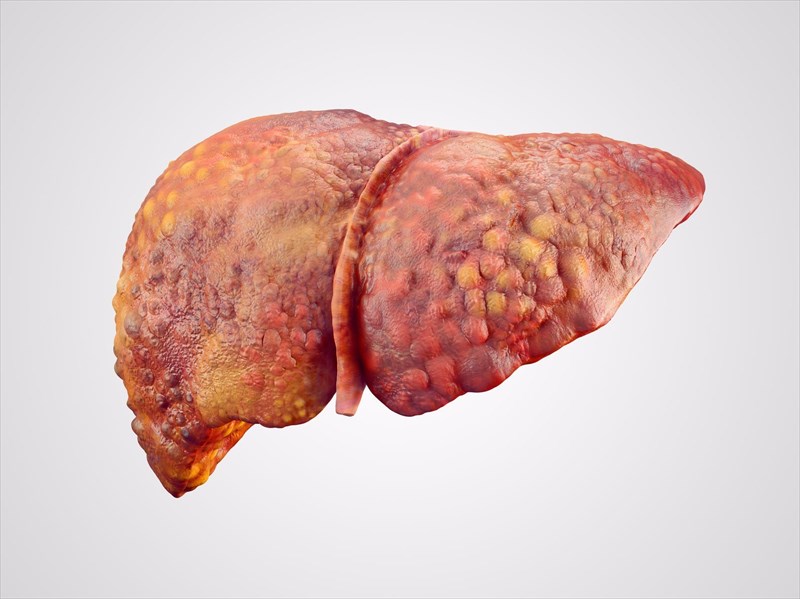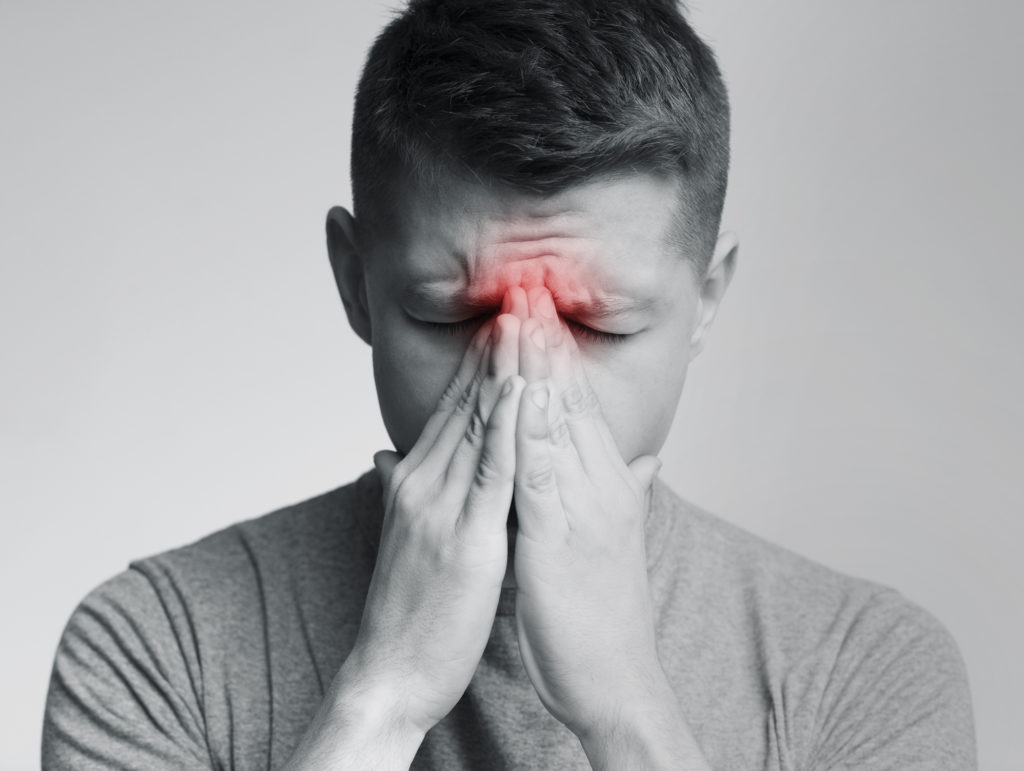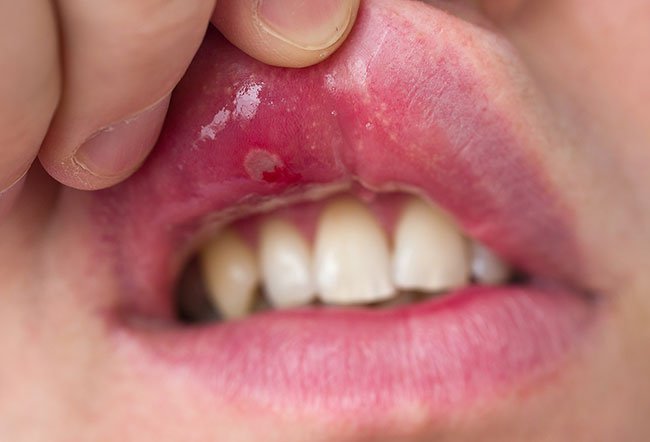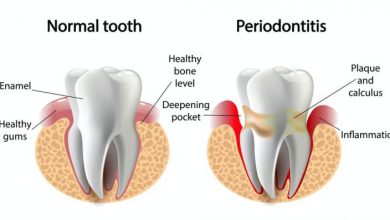The kidney and their diseases – everything we need to know
A kidney primary function is to maintain the balance of blood components in the body. The purpose of this article is to review kidney structure and function, diseases, and ways to maintain kidney health.
All vertebrates have kidneys, which are bean-shaped organs. In addition to removing waste products from the body, they maintain the body’s electrolyte levels and regulate blood pressure.
On either side of the spine, below the ribs, and behind the stomach are the kidneys. The size of each kidney is about the size of an adult fist, and each kidney is approximately 9 to 12 cm long.
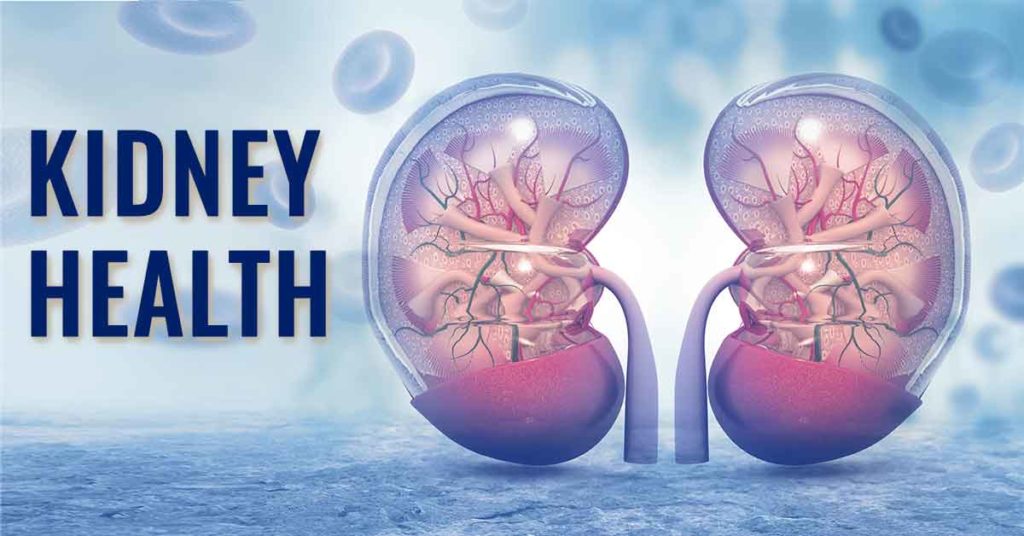
One of the most important organs in the body is the kidney. In ancient Egypt, only the brain and kidneys were embalmed because they believed these organs had a greater value.
A kidney’s main function is to filter blood. Among other functions, they eliminate waste products and regulate the balance of body fluids and electrolytes. Each day, all the blood in your body passes through the kidney filters.
Blood enters the kidneys as it circulates in the body. The kidneys have about one million tiny filters called nephrons. Blood wastes are excreted and, if necessary, salt, water, and minerals are reabsorbed. Filtered blood returns to the body.
Men’s kidneys weigh 125 to 170 grams and women’s weigh 115 to 155 grams. Women’s kidneys are also slightly longer than men’s. Women’s kidneys measure about 9.5 to 11 cm and men’s kidneys measure about 10 to 12 cm.
The kidneys are surrounded by three layers from the outside to the inside. The outermost layer of connective tissue is known as the renal fascia. Additionally, this layer covers the adrenal glands (the glands above each kidney). In addition, there is a fat capsule surrounding the kidneys that helps keep them stable. The kidney capsule is the most inner layer. There are substantial and complex fibrous structures in this capsule.
The kidneys filter blood several times a day. This function is performed by these organs with about 25 percent of the oxygen absorbed by the lungs. As a result of aerobic respiration, oxygen enables kidney cells to produce chemical energy in ATP (energy carrier molecule). Urea is the fluid that filters blood out of the kidneys.
The different parts of the kidney
Together with the bladder, the kidneys form the body’s urinary system. Here are the other parts of the kidney:
Nephron
The nephron is an important part of the kidney. The nephron receives blood, metabolizes nutrients, and excretes waste products through filtered blood. There are about a million nephrons in each kidney, each with its own internal structure.
Why is this important?
The kidneys’ primary function is to remove waste products and excess fluids from the body. Wastes and extra fluids are excreted in urine. The excretion and reabsorption of urine are very complex processes. Minerals and body composition must be maintained through this process.
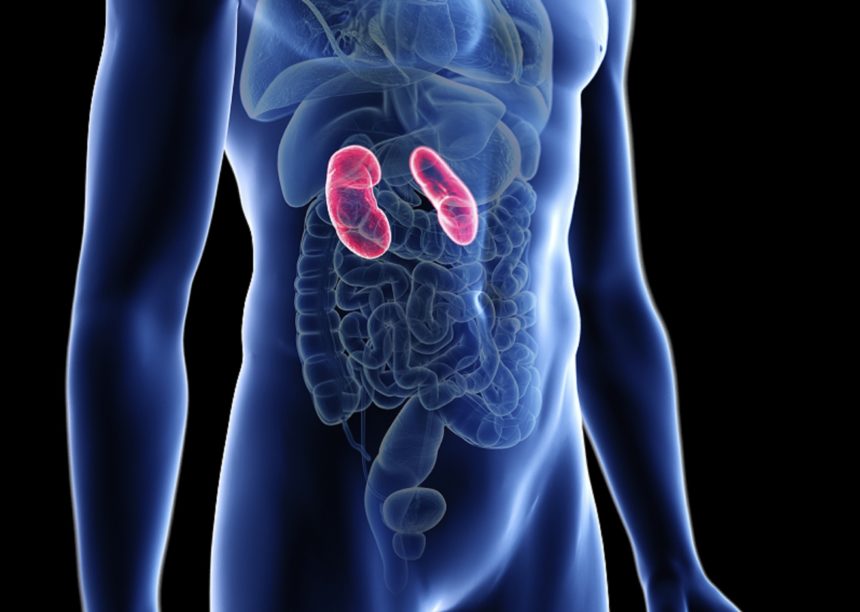
The kidneys regulate blood pressure, produce certain hormones, and keep the balance of minerals and body fluids.
In the body, the kidneys regulate sodium, potassium, and acid levels. Other organs are also affected by the hormones produced by the kidneys. The kidneys, for instance, produce a hormone that stimulates the production of red blood cells. The kidneys also produce hormones that regulate blood pressure and calcium metabolism.
They also remove waste products from the body.
The rest of the drugs are excreted by the body.
Body fluid balance.
Hormones that control blood pressure.
Active form of vitamin D that strengthens bones.
They regulate red blood cell production.
You can learn more about the kidneys and their vital role in the body below.
Function of the kidneys
Maintaining homeostasis is the primary function of the kidneys. In other words, they keep the body’s internal environment constant and balanced by maintaining fluid levels, electrolyte balance, and other factors.
The kidneys filter excess water and remove toxins from the blood. According to the National Institutes of Health (NIH), the kidney filters about 113 to 144 liters of blood per day and 0.94 to 1.8 liters of urine per day.
The kidneys aren’t just giant sponges for purifying the blood. There are millions of tiny filters called nephrons in every system.
kidneys
There are two parts to the nephron. The first part is the glomerulus. Blood cells and large molecules are separated from toxins and liquids by this filter. Fluids and toxins pass through the renal tubules. Toxins are filtered from the bloodstream through the renal tubules, which collect the minerals the body needs.
The kidneys produce urine to excrete waste products and toxins. Urine is passed into the bladder through two tubes called the ureters. Urine leaves the body through the urethra.
The kidneys also produce hormones necessary for these functions. Hormones like these regulate blood pressure, build red blood cells, and support bone health. A kidney is composed of many parts, the most important of which are listed below:
Trash disposal
The kidneys eliminate wastes by excreting them in the urine. The main compounds that destroy the kidneys are:
urea, which is produced when proteins break down.
The breakdown of nucleic acids produces uric acid.
During nutrient absorption, uric acid is formed.
To prevent the loss of certain substances and water from the body, the kidneys return nutrients to the blood during purification. In addition, they return other products to the blood to maintain homeostasis. These include:
Glucose
Amino acid
Bicarbonate
Water
Phosphate
Ion chloride
magnesium
potassium
Maintain body pH
Humans should maintain a pH level between 7.28 and 7.42. Below this level, the body enters an acidic state, while above this level, it enters an alkaline state.
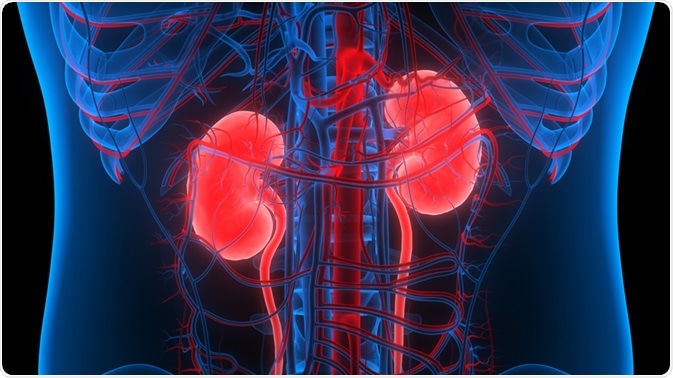
Proteins and enzymes can no longer function outside of this range. The pH of the body can change drastically leading to death. A stable pH in the human body is maintained by the kidneys and lungs. By modulating carbon dioxide concentration, lungs control pH, and the kidneys control pH by two processes:
Absorption and regeneration of bicarbonate from urine: Bicarbonate helps neutralize acids. If the pH is acceptable, the kidneys can retain bicarbonate in the urine or release it into the blood if the acid level rises.
Removal of hydrogen ions and stable acids: Fixed or non-volatile acids do not form from carbon dioxide. They are a result of the incomplete metabolism of carbohydrates, fats, and proteins. Lactic acid, sulfuric acid, and phosphoric acid are among these acids. The pH level of the blood is maintained by excreting these acids in the urine.
Regulate blood pressure
Blood pressure is regulated by the kidneys as needed and for a longer period of time. By changing the extracellular fluid, the kidneys regulate long-term pressure in the arteries.
As blood volume and blood pressure decrease, the kidney releases renin into the bloodstream. Vasoconstrictor molecules raise blood pressure and release aldosterone from the adrenal glands.
The hormone aldosterone increases the reabsorption of sodium and water from the urine in the kidneys, resulting in an increase in blood pressure. High blood pressure damages kidneys. Among these factors are excessive alcohol consumption, smoking, and obesity.
Eliminate toxins
In addition to the liver, the kidneys are responsible for protecting our bodies from toxins. Venomous snake bites cause blood clots. In the kidneys, clotting compounds accumulate in the collecting ducts. If poisoning is not treated, it can lead to acute kidney damage or permanent kidney failure.
Toxins can be small, medium, or large in size. Molecules and most cells are enormous and cannot be transported to the healthy Bowman capsule and remain in the blood. The liver breaks them down into smaller molecules.
Any waste can be toxic. Toxins include dead cells and by-products of cellular respiration, for instance. The urine excretes a wide variety of toxins.
If excessive toxins damage the kidneys in the body, the damaged nephrons become very absorbent. When larger protein molecules are detected in urine tests such as albumin and red blood cells, it is often concluded that one or both kidneys are damaged.
Activation of vitamin D
Vitamin D is activated by the kidneys through diet or after sun exposure. Vitamin D is transported to the liver, where it is converted into calcidiol.
The kidneys have many receptors for calcidiol, which makes it an active form of vitamin D called calcitriol. Calcium absorption, cell growth, muscle function, and immunity all depend on calcium.
Chronic kidney disease patients may require calcium supplements. These people are unable to benefit from taking an inactive form of vitamin D since the kidneys are responsible for converting it into an active form.
Electrolyte balance
When athletes exercise, they drink beverages with electrolytes added. Sweating destroys minerals that are water-soluble. Electrolytes are also lost during vomiting or diarrhea in the body.
Electrolytes in the body include sodium, chloride, potassium, magnesium, phosphate, and bicarbonate. Each of these minerals plays a crucial role in the body. Sodium and chloride have a strong affinity for water, and kidneys are very good at removing excess salt from the body.
You will probably feel thirsty after eating a very salty meal. Because the kidneys excrete salt components, salt enters the urine along with a lot of water. In excess water, the bladder fills, and lack of absorbed water causes the secretion of an anti-diuretic hormone, which causes thirst.
Minerals play an important role in our bodies. The kidneys need to regulate and maintain this balance. Intercellular communication and muscle contraction are dependent on sodium. Sodium and potassium have the opposite effect, and an imbalance in both can cause cardiovascular disease.
Phosphorus is an essential mineral for bones, teeth, nerves, and muscles. More than 300 biochemical reactions take place in the body when magnesium is present.
Bicarbonate is a natural alkali that helps regulate the pH of the body. Carbon dioxide and hydrogen ions are acidic. We can exhale carbon dioxide, but other acids must be neutralized or eliminated. A body’s pH is regulated by alkaline bicarbonate ions and acidic hydrogen ions. They can be absorbed or reabsorbed in the urine.
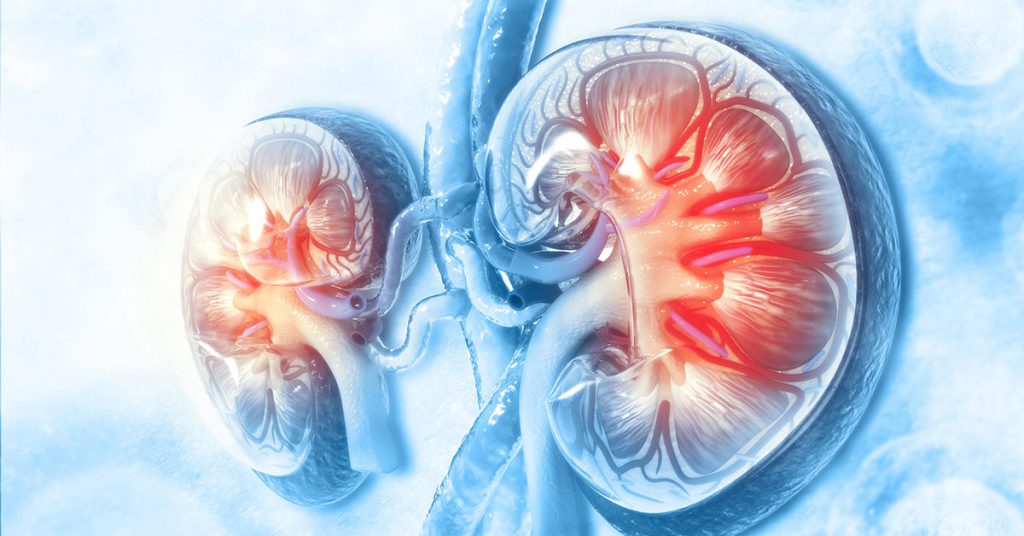
Kidney diseases
kidney infection
A variety of health problems can result from improper kidney care and genetic history of kidney disease. There are many conditions that can affect the kidneys. These include type 1 and type 2 diabetes, high blood pressure, urinary tract obstruction, and inflammation of the kidneys.
Kidney failure is the most severe form of kidney disease. The kidneys fail without medical assistance. Dialysis or a kidney transplant are necessary for people with kidney failure. Typically, people with healthy kidneys can donate a portion of their kidneys to patients in need without getting sick.
Kidney disease can be caused by environmental or medical factors. Additionally, some people are born with structural and functional problems with their kidneys. In this section, we will look at kidney diseases:
Pyelonephritis: Bacteria infect the kidneys and cause back pain and fever. The pelvis, tubules, and kidney tissue are infected. The most common cause of pyelonephritis is bacterial spread due to an untreated bladder infection.
The minerals in urine may form crystals that are large enough to block the urine flow. Kidney stones are one of the most painful kidney conditions. The majority of kidney stones are naturally excreted. However, some of them are very large and can block the urinary tract, causing kidney infections. As a result, medications, crushers, and surgery may be necessary.
kidney infection symptoms :
kidney stone symptoms
Symptoms of kidney diseases are generally similar. If you have symptoms of kidney disease and they come back, you should see a doctor. If left untreated, most kidney diseases can lead to kidney failure. Here are some of the most common symptoms.
Some kidney diseases, such as kidney stones and polycystic kidneys, cause pain in the back and sides. Joint and bone pain can also be caused by kidney infections.
If fever is present with other symptoms of kidney disease, it may indicate kidney infection.
The first signs of kidney stones are frequent urination (low volume) and pain when urinating.
When the kidneys filter waste products from the blood, they do not usually transfer blood cells to the urine. However, damaged kidney filters can increase the leakage of blood cells into the urine. In addition to kidney disease, blood in the urine can indicate a tumor, kidney stone, or infection.
Discoloration and odor of urine: Discoloration and smell of urine can indicate toxins and abnormal substances in the urine. These changes are often caused by kidney stones, kidney infections, and certain medications.
The accumulation of toxins and impurities in the blood can lead to fatigue, loss of energy, and difficulty concentrating. Fatigue, weakness, and inability to concentrate can result from these problems. Anemia, another complication of kidney disease, causes weakness and fatigue.
Vomiting and nausea can be caused by an accumulation of waste products and toxins in the body that the kidneys cannot remove.
Leg swelling: When the kidneys are unable to adequately absorb excess body fluids, these fluids can cause swelling in various parts of the body, including the legs.
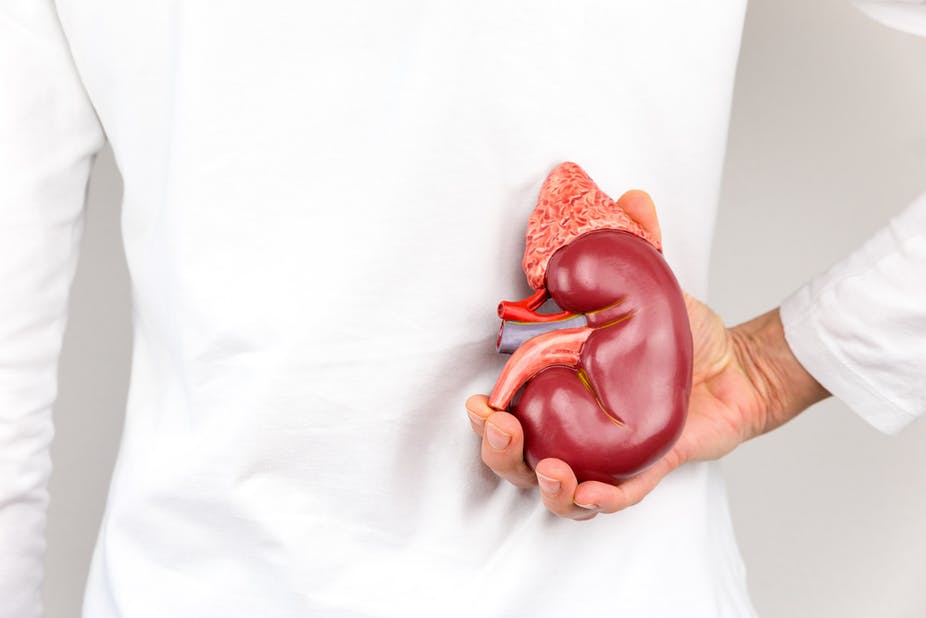
In advanced kidney disease, dry and itchy skin is often a symptom of problems with minerals and bones in the body. The kidneys are no longer able to maintain the balance of minerals and nutrients in the blood in this disease.
Muscle cramps occur when the body’s volume of fluids and electrolytes is disturbed by impaired kidney function. Muscle cramps, for example, are caused by uncontrolled low calcium and phosphorus levels.
Protein in the urine is the first sign of damage to kidney filters since it makes its way into the urine. Proteins excreted through urine reduce vascular osmotic pressure and interstitial fluids’ entry into soft tissues such as the eyes and swelling.
The most common causes of kidney damage are:
Misuse of painkillers: Prolonged use of painkillers may lead to chronic analgesic nephritis. These include painkillers such as aspirin, acetaminophen, and nonsteroidal anti-inflammatory drugs (NSAIDs).
Continuous and long-term use of painkillers causes acute renal failure.
Lithium: Doctors prescribe lithium to treat schizophrenia and bipolar disorder. But long-term use of lithium can cause kidney damage. However, with careful medical supervision, the adverse effects of lithium can be prevented.
Chemotherapy agents: The most common type of kidney disease in people with cancer is acute kidney damage. This injury may be caused by severe vomiting and diarrhea, which are common side effects of chemotherapy.
Alcohol: Alcohol alters the kidneys’ ability to purify the blood. It also causes dehydration, and the kidneys have trouble repairing the body’s fluid balance and raising blood pressure, which can prevent the kidneys from functioning properly.
Kidney failure can be caused by sudden loss or reduction of blood flow to the kidneys. This problem can be caused by certain diseases such as heart attacks, liver failure, dehydration, severe burns, allergic reactions, and high blood pressure.
When the body cannot urinate, toxins accumulate in the kidneys, causing problems. Cancers such as prostate, colon, and bladder cancer can block the urinary tract.
Various factors such as kidney stones, urinary tract, bladder, blood clots in the urinary tract, and damage to the bladder nerves can also cause urinary problems.
kidney failure symptoms
Early diagnosis and treatment of kidney disease can prevent the disease from progressing and leading to kidney failure. A few simple tests can be used to diagnose kidney disease early. Here are some examples:
Blood test: The primary way to diagnose kidney disease is through a blood test. During this test, a waste product called creatinine and blood urea levels are measured. Based on your age, weight, and gender, your doctor will calculate how much kidney waste should be filtered in one minute based on your blood test results. A healthy kidney should be able to filter more than 90 ml per minute. In the event that this amount is less as a result of the test, you may have kidney damage.
Urine tests: A variety of urine tests can evaluate kidney function. An albumin ratio to creatinine (ACR) test, for instance, determines the amount of albumin in your urine. It may indicate that the disease has damaged the kidney filtering units if there is too much protein in the urine. In some cases, the test result may be caused by a false positive fever or strenuous exercise that needs to be repeated.
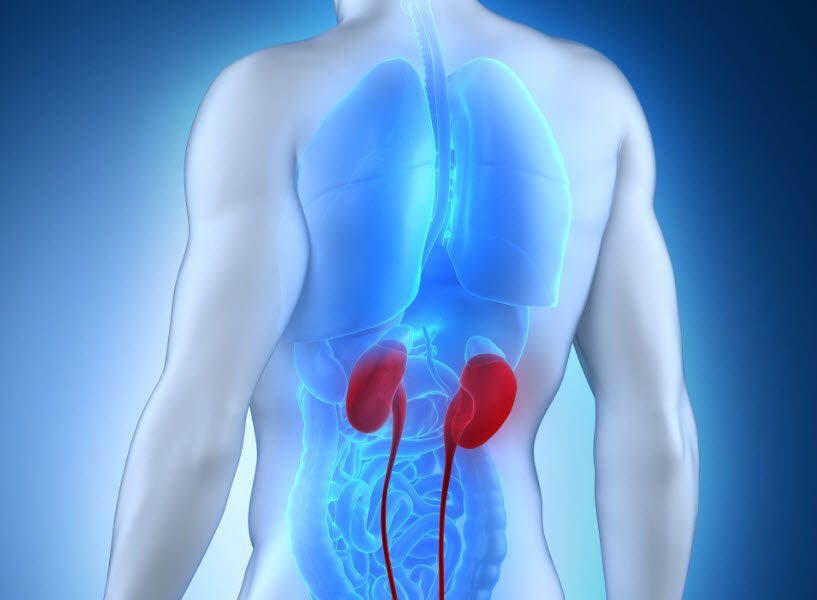
Other tests to diagnose kidney disease
Occasionally, other tests are used to determine the extent of kidney damage. Examples include:
An ultrasound, MRI, or CT scan can be used to check for obstruction, cysts, and tumors in the kidneys. The image below shows a polycystic kidney scan.
kidney infection treatment
Depending on the cause of the disease, some types of kidney disease can be treated. Often, however, there is no cure for chronic kidney disease.
Treatment for kidney disease usually includes practical measures to control the signs and symptoms, reduce complications, and slow the disease’s progression. If your kidneys are severely damaged, you may need the final stage of treatment for kidney disease. The last step of treatment is described below.
The doctor uses this method to reduce or control the cause of kidney disease. Treatment options depend on the cause of the disease.
It is possible to control kidney disease complications so that the condition is more tolerable. Among these treatments are:
medications for high blood pressure
as well as cholesterol-lowering medications
anemia medications
anti-inflammatories
bone-protective medications
low-protein diet to minimize blood waste products
During the last stage of kidney disease, when the kidney alone cannot handle waste products and excess body fluids, the patient is suffering from complete or almost complete kidney failure. This requires dialysis or a kidney transplant.
Dialysis
During dialysis, waste products and excess fluid are removed from a patient’s blood when the kidneys are unable to function.
Kidney transplant
A kidney transplant involves transplanting a healthy kidney into the body of a patient through the donor. Donor kidneys are available for transplantation.
How to keep your kidneys healthy
We can always keep our kidneys healthy if we maintain a healthy lifestyle. Water is one of the most important things to remember when it comes to kidney health. To function correctly and eliminate toxins from the body, the kidneys need water.
High blood pressure and diabetes are major causes of kidney problems. Consequently, a healthy diet can prevent several common causes of kidney disease. For healthy blood pressure, the National Heart, Lung, and Blood Institute (NHLBI) recommends the DASH diet.
Getting enough exercise can reduce the risk of high blood pressure and obesity. High blood pressure and obesity can negatively affect kidney health.
Keep your kidneys healthy by drinking plenty of water. Drinking about six to eight glasses of water a day can help improve and maintain kidney health.
Keeping your kidneys healthy can be achieved by drinking eight glasses of water each day.
When taking supplements, be careful; not all supplements and vitamins are good for you. Some of these drugs can damage the kidneys if taken too often. Too much vitamin C and calcium can lead to kidney stones, for example.
Limit salt and some minerals: Limit sodium intake to a maximum of 2300 mg a day. It is recommended that the body consume 2000 and 1000 mg of potassium and phosphorus each day, respectively, and consuming too much of either can harm the kidneys.
Do not smoke: Tobacco smoke clogs blood vessels. The kidneys cannot function normally without an adequate blood supply.
Over-the-counter (OTC) drugs: OTC medications are not safe just because you do not need them. OTC drugs, such as ibuprofen and naproxen, can damage the kidneys if overused.
Regular kidney screening is recommended for anyone with high blood pressure or diabetes to diagnose any kidney problems as soon as possible.
The National Institute of Diabetes and Gastrointestinal Diseases (NIDDK) recommends getting 7 to 8 hours of sleep a night and doing stress-reducing activities every day.
Foods that affect kidney health
Some foods in the diet can help maintain the health and function of the kidneys. Here are a few of them:
Kidney-friendly foods
Cauliflower and cabbage
Red grapes and apples
Egg white
olive oil
Bulgur
Chicken
Bell pepper
Radish
Pineapple
also read :
All symptoms of kidney stones and treatment methods
Excretion of kidney protein and all about its causes and symptoms


